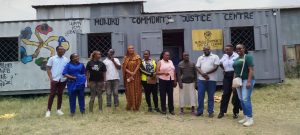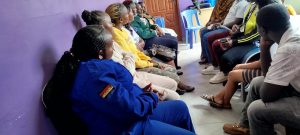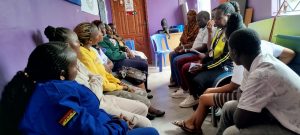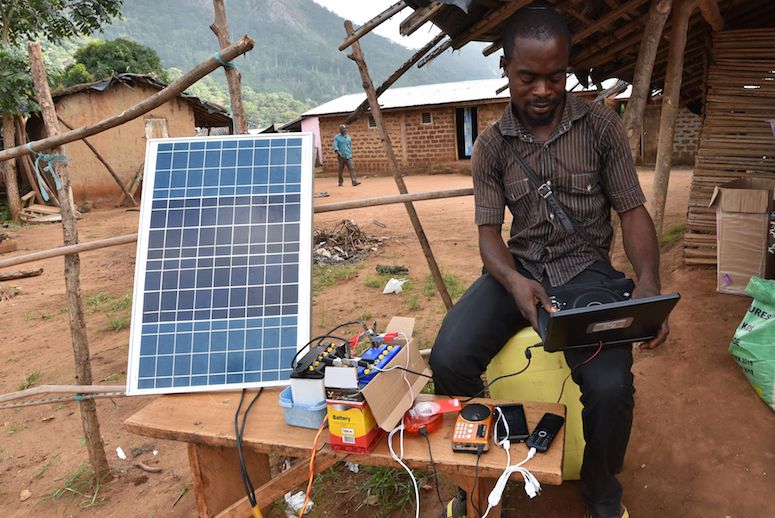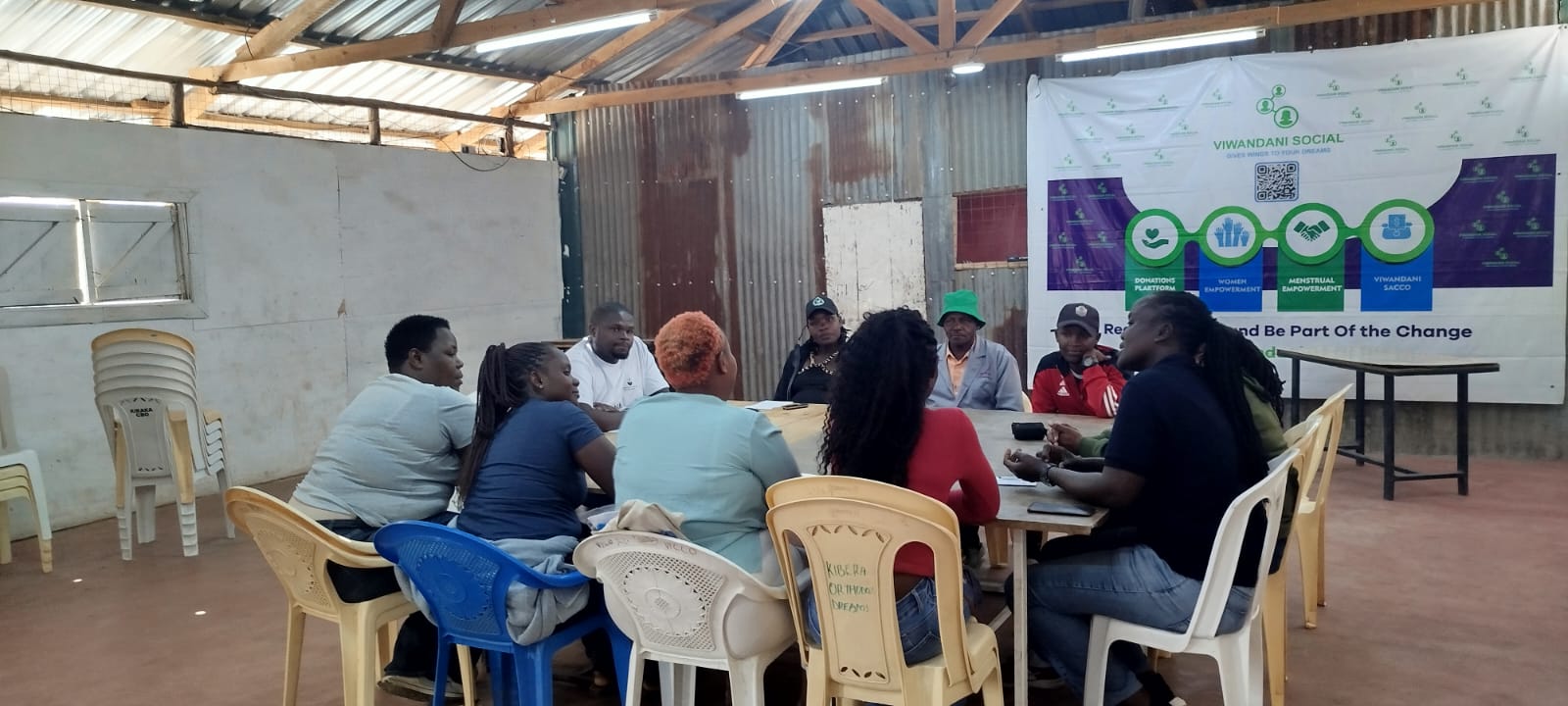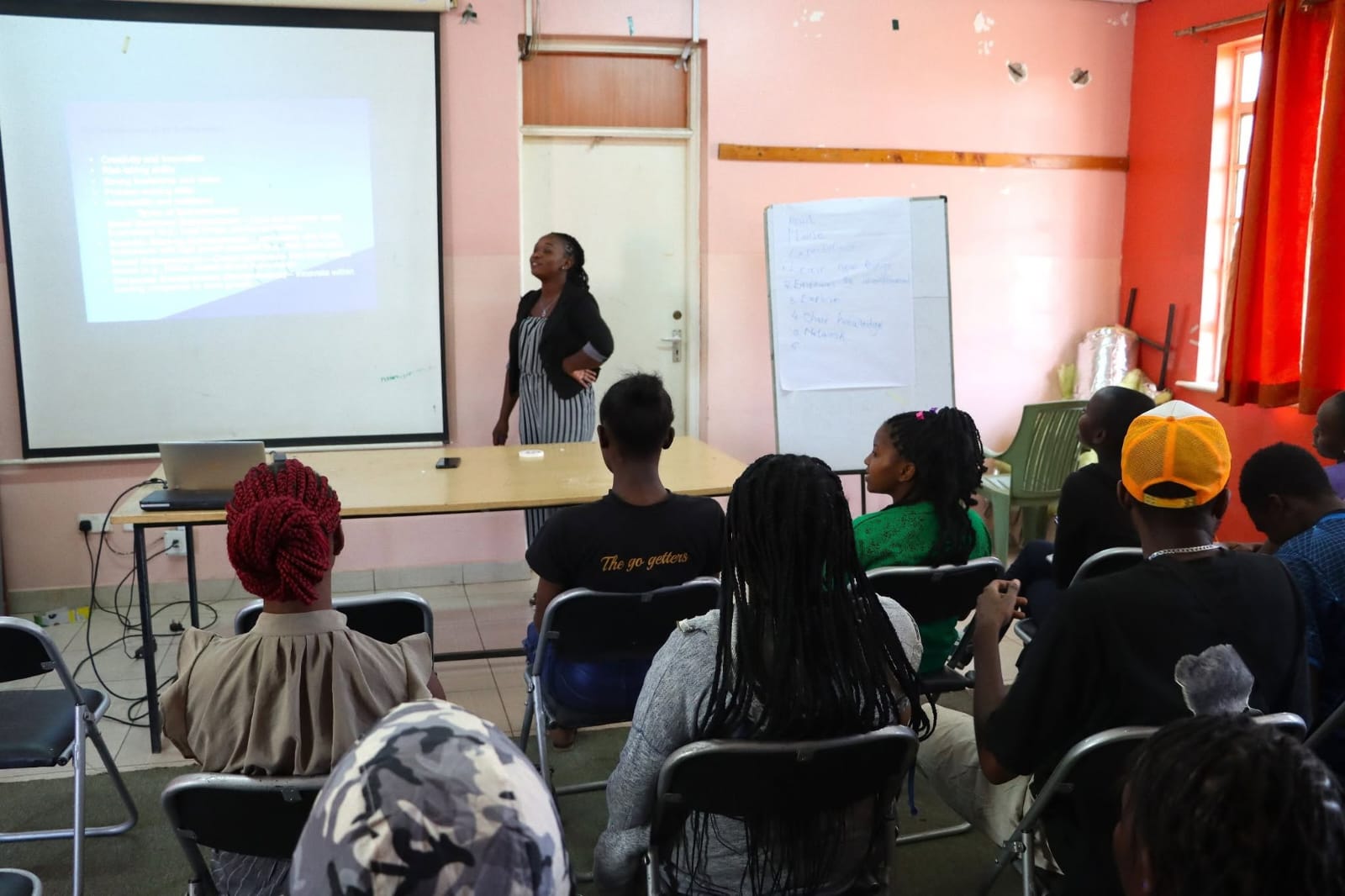FALSE: Photo does not show the drought situation in Embolioi, Kajiado County, in October 2022
The roundtable discussion was convened to provide a safe platform for open dialogue between police officers, local leaders, and residents of Mukuru. The objective was to reflect on how Sexual and Gender-Based Violence (SGBV) cases are currently being handled, identify the existing gaps, and collectively chart a way forward. This initiative sought to promote continuous learning, strengthen community-centered solutions, and enhance collaboration for improved reporting, response, and survivor support.
Key Findings
Discussions revealed several key insights that highlight both the progress made and the challenges still facing the community in addressing SGBV.
First, lack of knowledge among residents emerged as a significant barrier. Many community members are unaware of the existence of police gender desks or the proper reporting channels for SGBV cases. In some instances, survivors confuse SGBV with family disputes and opt for informal settlements, which often denies them justice.
Second, the meeting acknowledged positive collaboration between police officers, leaders, and residents. This cooperation has been evident in awareness creation and joint responses. However, it was noted that such collaboration is not always consistent, leaving some leaders and residents feeling excluded from critical decision-making and follow-ups.
Third, concerns about corruption and misuse of power were openly discussed. Cases have been mishandled due to bribery or external influence, particularly where perpetrators have financial resources. This has weakened trust in formal systems, with many survivors and their families believing justice can be “bought.”
Fourth, women’s difficulty in reporting cases remains a major challenge. Survivors of intimate partner violence, in particular, hesitate to report incidents due to fear of victim-blaming, retaliation, and cultural expectations that discourage women from speaking out.
The roundtable also noted the nature of intimate partner violence in Mukuru. Many cases are triggered by allegations of infidelity or mistrust in relationships. Such disputes often escalate into physical or emotional violence but frequently go unreported or are resolved informally outside formal justice systems.
Another finding was the fear of reporting cases. Around 20% of residents admitted being afraid to report due to intimidation, stigma, or lack of confidence in police protection. Survivors also expressed concern about privacy, fearing their cases would become public gossip.
Lastly, limited awareness of survivor rights stood out as a critical gap. Survivors often lack information on their legal rights and available services, including counseling, medical attention, and legal aid. This knowledge gap delays reporting and hinders proper handling of cases.
Recommendations
To address these gaps, the roundtable proposed several recommendations.
First, protecting survivors’ privacy and confidentiality must be prioritized. All reporting and investigation processes should uphold survivors’ dignity, and continuous training on trauma-sensitive approaches should be provided to police, leaders, and service providers.
Second, participants emphasized the need to encourage survivors to seek help from gender officers and safe spaces. Gender desks must be made more visible, with more female officers deployed to encourage openness. Expansion of shelters and safe spaces where survivors can receive counseling, legal advice, and temporary protection was also recommended.
Third, clear procedures and protocols should be consistently followed. Standard Operating Procedures (SOPs) need to be simplified and widely disseminated, with regular audits to ensure compliance. Referral pathways linking communities, police, health services, and the judiciary should be strengthened and made more accessible.
Fourth, timely reporting and response were seen as essential. Awareness campaigns should stress the importance of immediate reporting to preserve evidence and secure justice. Police must commit to quick response times, supported by hotlines and dedicated officers. Accountability measures should be put in place to discourage delays.
Fifth, collaboration and dialogue between police, leaders, and residents should be institutionalized. Regular forums should be held to review progress and challenges, while community leaders, elders, and faith leaders should be trained on survivor-centered approaches. The active involvement of youth and women groups in advocacy and awareness creation was strongly encouraged.
Sixth, to combat corruption, mechanisms for anonymous reporting of misconduct must be developed, and oversight bodies strengthened. Recognizing and rewarding officers who act with integrity was seen as a way to motivate good practice.
Finally, the roundtable highlighted the importance of community awareness and education. Sustained campaigns, using local radio, community forums, and schools, should address cultural barriers and stigma. Men and boys should be actively included to challenge harmful gender norms and reduce intimate partner violence.
Way Forward
Moving forward, the participants outlined practical steps to ensure progress is achieved.
Capacity building for police, leaders, and community volunteers will be prioritized, with training focused on survivor-centered and trauma-informed care. Continuous community awareness campaigns will be rolled out across Mukuru through barazas, churches, schools, and local media platforms, with youth and women’s groups playing a leading role.
Strengthening reporting mechanisms was also seen as urgent. A clear referral pathway connecting communities to police, health services, and legal aid will be developed, alongside a toll-free hotline for confidential reporting.
To build trust and accountability, a joint monitoring committee made up of police, community leaders, and civil society will be established. Anonymous feedback systems will allow residents to report misconduct or delays without fear.
Survivor support systems will be enhanced through the expansion of safe houses and stronger linkages with health facilities for medical and psychosocial support.
Quarterly community–police dialogues will be held to maintain open communication, share success stories, and review gaps. Advocacy efforts will also be intensified with the Nairobi County Government and civil society organizations to push for stronger enforcement of SGBV-related laws and increased budget allocations for gender desks, safe spaces, and survivor support programs.
Success Story
The discussion highlighted a recent success that demonstrates the impact of community-driven initiatives. 16 community members have been trained as Community Champions to raise awareness about the importance of reporting SGBV cases through the rightful channels. These champions now serve as the first point of contact for survivors, providing information, encouragement, and referrals to the appropriate services.
They have already begun sensitizing residents in churches, schools, and youth forums, breaking the silence around SGBV and fostering a culture of timely reporting. This achievement illustrates the power of equipping community members to take ownership of the fight against gender-based violence, ensuring that survivors are no longer isolated but supported.
